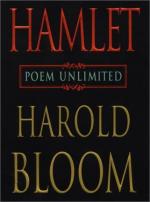|
This section contains 4,294 words (approx. 15 pages at 300 words per page) |

|
SOURCE: "The Over-Reader: Harold Bloom's Neo-Darwinian Revisionism," in Poetics, Vol. 12, No. 2/3, March, 1983.
In the following essay, Horstmann takes issue with various elements of Bloom's work.
Harold Bloom embarked on his scholarly career in 1959 when he published his dissertation on Shelley's Mythmaking and reached notoriety fourteen years later with The Anxiety of Influence: A Theory of Poetry. This book formulated the Magna Charta of Bloom's poststructuralist doctrine of 'antithetical revisionism', and its author has since expounded and consolidated his highly controversial poetics with unremitting zeal and missionary ardour in such studies as: A Map of Misreading (1975), Kabbalah and Criticism (1975), Poetry and Repression: Revisionism from Blake to Stevens (1976), Figures of Capable Imagination (1976), Wallace Stevens, The Poems of Our Climate (1977), Agon: Towards a Theory of Revisionism (1982).
Bloom's more recent work does not only propagate the heuristic principle of antithesis; more importantly it embodies and exemplifies it by reacting antithetically to the...
|
This section contains 4,294 words (approx. 15 pages at 300 words per page) |

|


